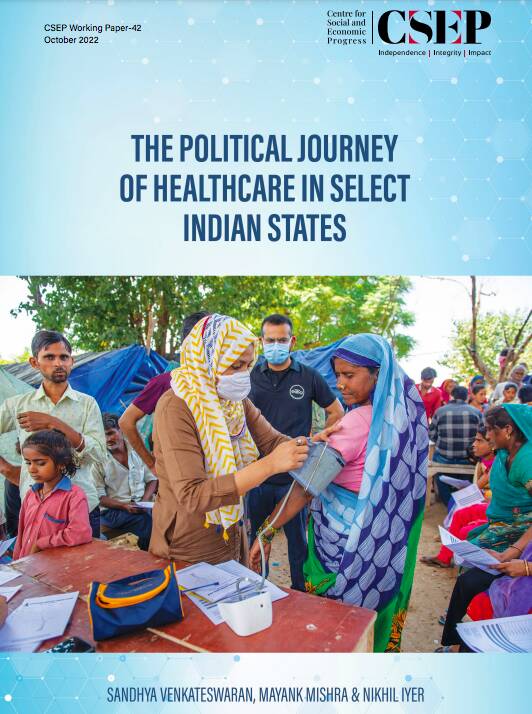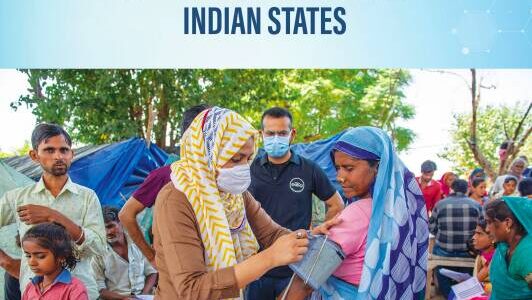Authors: Sandhya Venkateswaran, Mayank Mishra and Nikhil Iyer
Published: October 2022
To comprehend the advancements in health within India, it’s essential to analyse the progress achieved in different states. While many aspects, including fiscal health, governance, institutional capacity, and others influence health progress, the political priority accorded to health by a state’s leadership remains a key driver.

How the leadership views and positions healthcare in their vision for the state and its development path and the potential incentives they see accruing as a result of healthcare improvements, forms the basis of the attention given to this issue in a state.
In light of this context, The Quantum Hub worked with the Lancet Citizen’s Commission on Reimagining India’s Health System to examine the socio-political determinants of attention to health in five Indian states – Tamil Nadu, Rajasthan, Andhra Pradesh, Bihar and Jharkhand.
The analysis surfaces four insights. One, political ideology plays a role in driving attention to health, but political legitimacy can be linked with healthcare to drive attention in the absence of an ideological driver. External stakeholders can create an environment where legitimacy is linked with healthcare.
Two, sensitizing politicians to electorally rewarding policies elsewhere, and relevant to the state’s development journey, can motivate them to act.
Three, state capacity is a key variable in the confidence to undertake reforms and the choice of reforms.
Four, both the Central government and external stakeholders such as civil society can contribute to agenda setting at the state level.
